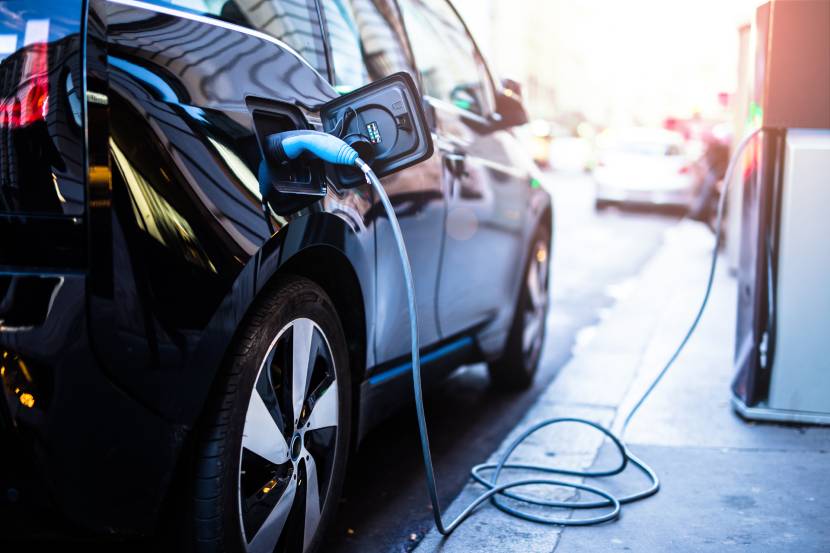There’s no doubt about it—everything is getting more expensive. And with rising inflation rates, the instability of the worldwide economy, and growing concerns over fuel efficiency, car prices are almost certain to go up in the next 10 years as well. So it’s no wonder why drivers are becoming more aware of the long-term financial impacts of vehicle ownership.
Google Trends data (Jan 2025) shows that searches for ‘car costs in 10 years” are up 367% worldwide in the last quarter of 2024. These factors, alongside the rise of environmental concerns, mean that demand for electric and hybrid vehicles is rising, with nearly 14 million sales in 2023 (3.5 million higher than in 2022).
But with everything becoming more pricey, how expensive will cars become in the next decade? We analyse the data to find out what will drive up car prices in 2035.

UK ICE car prices estimated to rise by 46% in next 10 years
- ICE car prices in the UK are set to rise by 46% in the next 10 years - up £16k.
- EVs are going to see an even bigger hike of 103%, costing you £20.5k more in 2035.
- The UK is projected to be the 96th most expensive country to buy a car in 2035.
It’s likely that the shift from internal combustion engine (ICE) cars to electric vehicles (EVs) and alternative fuel vehicles (AFVs) such as hybrids will influence car prices- and we’re already seeing it, with EV models selling for more of a premium. And it’s only going to increase as ICE cars start to be phased out, raising demand for EVs, and affecting how much we pay for our cars overall.
In the UK, it’s estimated that the prices of ICE cars will rise by 46% between 2025 and 2035, according to our data. This means we’ll be paying around £16k more for a new ICE car. We can thank the new plans to phase out ICE cars for this.
The phase-out of ICE cars is already in motion. Car manufacturers in the UK have to make sure that 22% (soon to rise to 28%) of their sales are fully electric models. As this UK mandate is pushed and more ICE cars are replaced with EVs, it will become more difficult to find ICE models, raising their prices. Additionally, the fuel duty freeze may not last forever (only 2 years, in fact), which means if fuel prices rise above the current duty of £52.95 per litre, car prices will increase further.
"You’d be forgiven for thinking all of this would mean cheaper electric vehicles. But EVs are also likely to experience a price hike—around 103% increase over the next decade—going from around £32k in 2019 to £65k in 2035. This is also separate from the new road tax regulations coming in April 2025 (EVs didn’t have to pay road tax until now) and things like congestion charges becoming applicable to EVs and AFVs in December 2025, where they were previously exempt.”
What our Commercial Director & Motoring Expert says:

Technological advancements are good reasons to buy an electric car. But they’re also likely to impact the cost of a new vehicle. EVs are already some of the safest cars on the road, but we’ll no doubt see some impressive innovations in the next 10 years. Features that make the roads safer, give your car longer battery life (with faster charge times), and make the time spent in the car more comfortable will continue to be developed. But this does mean that we’ll end up paying more.
Which European countries will have the most expensive cars in 2035
We analysed global data to uncover the cost of cars in 2035 in 167 countries. Following this, we uncovered what this will look like for Europe in a snapshot. Which European countries are likely to experience the biggest rises in new average car costs?

Prices vary widely across Europe, with some countries experiencing less drastic changes than others. For example, northern countries are more likely to see a higher uptick in car prices than others.
The 3 most expensive European countries to buy a car in 2035 will be Denmark, Norway, and Iceland. Expect prices of electric vehicles to be in the £96,000 range for Denmark, £93,000 in Norway, and £87,000 in Iceland in 2035. Why these particular countries? They’re likely to see the largest rises because of factors such as high import duties, stricter taxation on vehicle emissions, and very strong currencies, which contribute to higher prices on goods like cars. In contrast, countries like Greece, Croatia, and the UK will see smaller price increases of £62k, £63k, and £65k, respectively.
The cost of cars is almost guaranteed to be heading skyward in the next 10 years or so (although we won’t be mad if we’re wrong). Contributing drivers to these prices include the level of demand, changes in regulations, and technological advancements. As car prices increase, so will the amount of insurance you pay, as insurers base their calculations on the cost to repair or replace the vehicle. So cars that are more expensive and with more tech (which equals higher repair costs) such as electric cars, are likely to have higher insurance premiums.
“With the cost of vehicles rising, more modern cars come with better safety features, minimising the likelihood of accidents and lowering premiums for some drivers. Although they are the pricier option, opting for the more eco-conscious car models is becoming more important to drivers which raises demand for EVs and AFVs. Understanding these key factors is essential to making an informed financial decision when it comes to your car insurance.”
What our Commercial Director & Motoring Expert says:

Whether you’re looking for a switch or a brand new start, use Confused.com to compare car insurance providers and find the best insurance rate for your car. Sorted!


